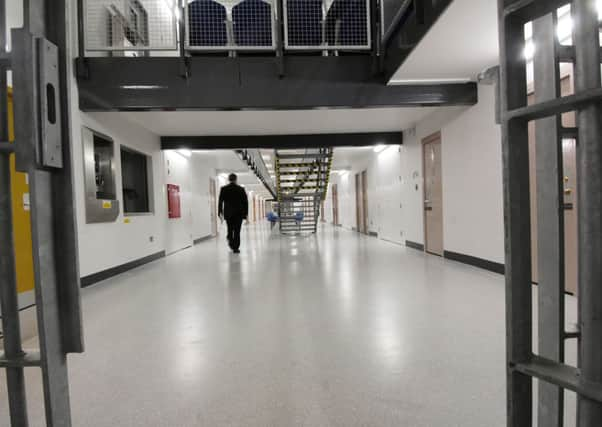Leaders: Automatic early release should end


Now, thankfully, the practice is soon to be partially ended. The Scottish Government has unveiled legislation which, if passed, will mean no automatic early release for any prisoner who has been sentenced to four years or more for a sex crime or for those sentenced to ten years or more for other crimes.
Consideration of early release for these prisoners will be handled by the Parole Board. In cases where the board believes that the prisoner is still a serious risk to the public, there may be no parole and the sentence could have to be served in full.
Advertisement
Hide AdAdvertisement
Hide AdNot before time, most people will think. It is quite bizarre that, say, a 12-year sentence meted out for a serious crime involving violence where members of the public have been injured does not actually mean 12 years. At the most, it means eight years and possibly less if the prisoner behaves well.
The public, very understandably, just do not comprehend that. It is even worse for victims of crime. If a judge believes that a perpetrator of a crime deserves to be locked up for, say, six years, why do another set of rules in effect say that the judge is wrong and the criminal should only serve four? Or is it the case that when a judge hands down a sentence he or she automatically increases that sentence to take early release in to account? How ridiculous.
Such rules make it look as though criminals are getting off lightly. And while the victim’s sense of injustice is bad enough, there is also the serious issue that automatic early release undermines confidence in the justice system, feeding the view that it is biased in favour of the criminal.
But it is also the case that these arguments apply with equal weight to all sentences for all crimes. The cut-off points proposed in the legislation look arbitrary. Why should a three-year sentence for, say, a sex crime mean, in effect, two years or less, while a four-year jail term for a slightly more serious offence of the same nature mean four years when the risk of re-offending may be the same in both cases?
The fact that in 2012-13, automatic early release under the proposed rules would have been ended for less than 1 per cent of prisoners suggests that this is more a cosmetic change designed to placate public opinion than a meaningful reform.
Reductions in sentences for good behaviour and serious efforts to reform have a place. Without such incentives, prisons could become very violent places and recidivism rates would soar. That exception apart, a prison term should mean what the judge says it means. Automatic early release should be abolished for all lengths of sentences.
Aid not arms is lower-risk option
Arming Kurdish fighters to ensure they have sufficient firepower to repel the murderous Islamic State (IS) militants threatening five million Kurds living in north-west Iraq seems sensible. Not only would it preserve their people, but it would also create a safe haven for the hundreds of thousands of refugees fleeing there.
But history says it is impossible to be sure that such weaponry will not end up in malevolent hands. Had the West rushed to arm rebels battling president Bashar al-Assad in Syria, a lot of those guns would be now be being used by the IS, which mostly originated in Syria. As it is, the IS fanatics are using American weapons originally supplied to the Iraqi army but which were abandoned as Iraq’s soldiers fled the IS onslaught.
Advertisement
Hide AdAdvertisement
Hide AdAdmittedly, Kurdish-controlled Iraq is not torn by the same kind of strife as Syria. It seems relatively unified, and the Kurds do not aim to occupy land where there is no Kurdish population. Still, these are unpredictable times in an unpredictable part of the world.
A better option looks to be to give every assistance to new Iraqi prime minister Haider al-Abadi to reform Iraq’s military into a force capable of engaging and defeating the IS, while piling as much humanitarian aid to the Kurds as is necessary to cope with the flood of refugees.
There are signs that Mr Abadi is already drawing support from Sunni leaders ostracised by his predecessor. Bringing Sunnis and Shias together will not only unify Iraq, but should end Sunni disaffection on which the IS militants have been feeding. Nothing in Iraq is risk-free, but this looks the least risky course of action in the long term.